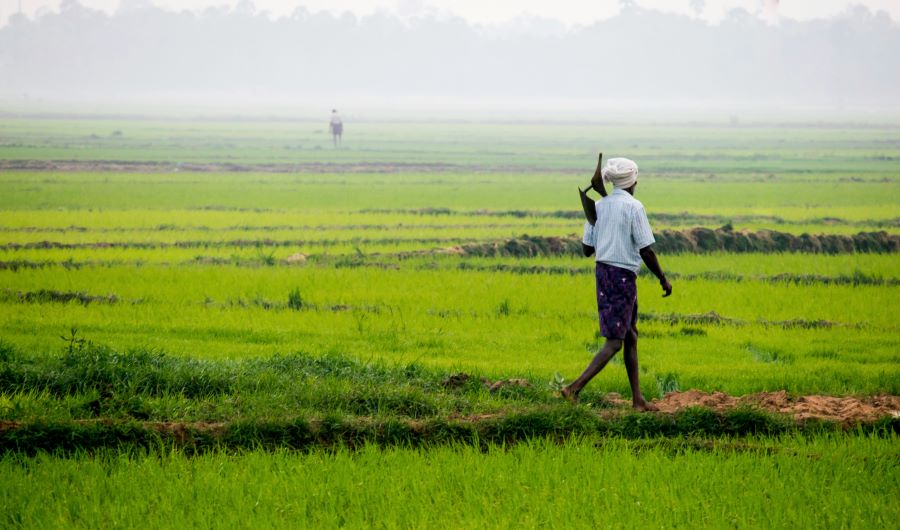Farming is a labour and capital-intensive task and requires plenty of effort to get results. To get the optimum results and a good crop, farmers often have to invest a hefty amount into their fields. But since the industry itself is so expensive, farmers often find themselves short on funds.
Which is exactly why the Government of India launched the Kisan Credit Card scheme, where any farmer who meets all the eligibility criteria can have access to credit easily, at lower rates of interest too!
The Kisan Credit Card is for those who want credit for their agricultural investment purposes. But what if we said there is a credit card that gives you discounts on Airtel Thanks app recharge or bill payments, annual savings up to ₹16,000, and many more? Get the Airtel Axis Bank Credit Card and enjoy all these benefits today!
Kisan Credit Card loan interest rates by all banks
Here is a table that covers all the Kisan Credit Card loan interest rates provided by various banks:
| Bank | Kisan Credit Card Interest Rate |
| SBI Kisan Credit Card | Up to 7% p.a. |
| PNB Kisan Credit Card | 7% |
| HDFC Bank Kisan Credit Card | 9% |
| Axis Bank Kisan Credit Card | 8.85% to 13.10% |
| Mahabank Kisan Credit Card | 7% |
| Indian Overseas Bank Kisan Credit Card | 7% (interest subvention provided) |
| UCO Bank | 7% (interest subvention provided) |
Read more: How does a credit card work – process explained

What are the benefits of the Kisan Credit Card scheme?
Launched by the Government of India in 1998, the KCC scheme aims to support farmers by ensuring they have access to necessary funds for cultivation and other farming activities.
The Kisan Credit Card scheme offers several advantages:
Simplified Credit Access
Farmers can easily obtain short-term credit for crop cultivation, purchase of agricultural inputs like seeds, fertilizers, and pesticides, and meet other cultivation expenses.
Flexible Repayment Options
The repayment schedule is aligned with the harvesting and marketing period of crops, providing flexibility and reducing financial stress on farmers.
Low-Interest Rates
The interest rates under the KCC scheme are significantly lower compared to traditional loans, often starting from as low as 7% per annum. Additionally, interest subvention (subsidy) schemes can further reduce the effective interest rate so that the country’s food growers can repay their loans with more ease.
Comprehensive Coverage
The scheme also covers allied activities such as animal husbandry, dairy farming, and fisheries, ensuring holistic support for rural livelihoods.
Insurance Cover
KCC holders are often provided with personal accident insurance coverage, offering protection against accidental death or disability, which helps to increase the social security of farmers.
Seamless Access to Financial Services
The card also facilitates easier access to other banking services, including savings and withdrawal of money. Financial inclusion is also a very big problem in India’s rural areas, which is covered with the help of the Kisan Credit Card scheme.
Read more: Credit card interest rates – what is it and how does it work?
Why was it important to create an easy credit lending system for farmers?
Before the Kisan Credit Card scheme came into being, the Indian rural farmer was forced to apply for loans from public or private sector banks and they would often get rejected. This led the same farmers to approach local or informal sector lenders, who would use predatory and loan sharking practices to make life more difficult for the farmers.
As a result, the farmer did not have any option but eventually fall into a debt trap. To ease the concerns of the farmers and to ensure that the country’s primary goodgivers are able to get credit easily, the Government decided that it was finally time to create a mechanism where farmers could readily get credit at interest rates lower to the current interest rates.
How was the Kisan Credit Card scheme formulated?
The National Bank for Agriculture and Rural Development (NABARD) functions as the apex agricultural development financial institution in the country. Established in 1982, NABARD’s mission is to promote sustainable and equitable agriculture and rural development through financial and non-financial interventions.
After NABARD was created, one of its landmark contributions was the launch of the Kisan Credit Card (KCC) scheme in 1998. In collaboration with the Reserve Bank of India (RBI) and major public sector banks, NABARD designed the KCC scheme to streamline the process of providing credit to farmers. This initiative aimed to ensure that farmers have timely access to affordable credit for their agricultural needs
The KCC scheme significantly simplified the borrowing process, reducing dependency on informal lenders and enabling farmers to sustain their agricultural activities with greater financial security and dignity. Through the KCC scheme, NABARD has played a pivotal role in enhancing the financial inclusion of farmers and fostering agricultural growth across India.
Thus, the Kisan Credit Card scheme is a huge boon for farmers all over the country. They can finally grow their produce and get credit for it easily, without having to jump through multiple challenges.


 Get App
Get App  Airtel Store
Airtel Store  Login
Login 


